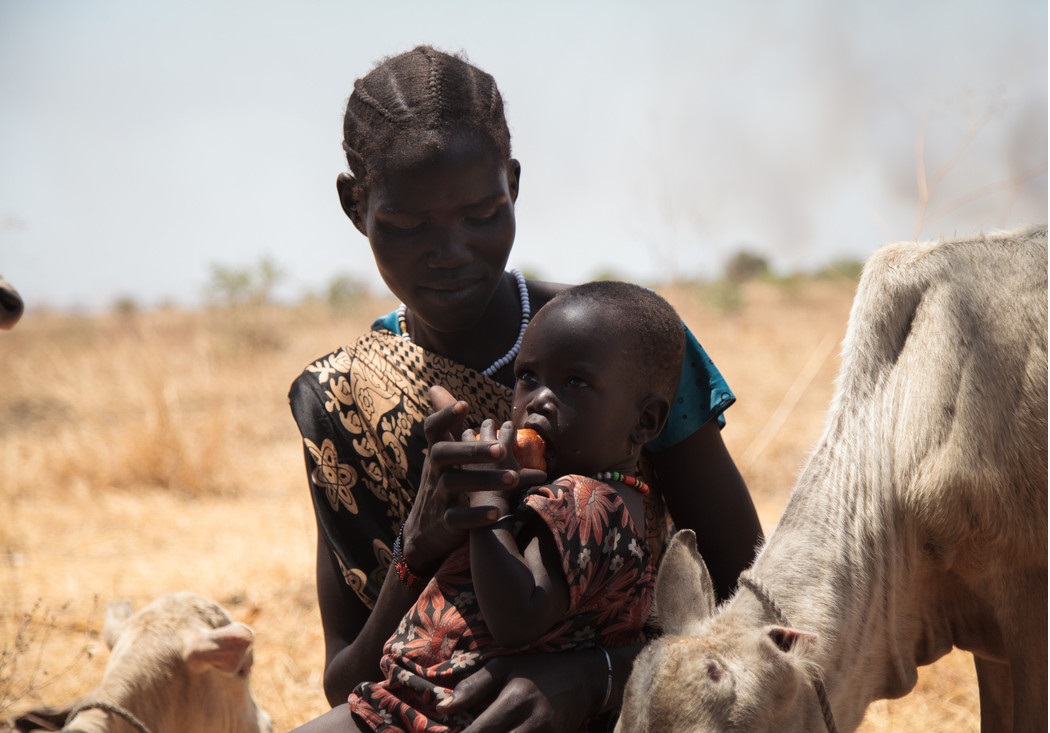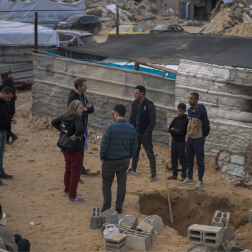- 4 mins read time
- Published: 16th March 2017
Fighting famine in East Africa, Nigeria and Yemen. Join us.
Across the world, millions of children, women and men are starving due to a devastating food crisis. A catastrophic combination of conflict and drought has left them facing terrifying food shortages – and there is no end in sight.
In Ethiopia, Kenya and Somalia in East Africa, more than 19 million people are on the brink of starvation, while war in South Sudan has forced more than 3 million from their homes, and left millions more desperate for food. In February of this year, South Sudan became the first country in the world to declare famine since 2011.

Photo: Tina Hillier/Oxfam
In the Somali region of Ethiopia, Fadumo lost three of her children – her triplets – to malnutrition when they were less than a month old.
The 32-year-old farmer said: “They died because of a lack of food – they were malnourished. They were less than one month old. First one child died, then two more. I was afraid.
“How can anyone be happy when they have lost three children?”
Meanwhile, the drought has claimed two-thirds of her livestock.
“I had shoats and camels,” she explained. “Before, I used to have 60 animals, now I just have 20. I have one camel which is still alive.”
Now she fears for the lives of her remaining children and said: “What will they eat? We are getting some help – have some food and water.”
But she added: “We need many things. We need food which is nourishing. Food is our biggest need.”
Elsewhere, parts of Nigeria – where at least 4.4 million people are experiencing crisis levels of hunger – are also thought to be in the grip of famine. However, the situation in the country is so volatile due to conflict that it has been almost impossible to confirm that famine has taken hold.
And in Yemen, ongoing fighting between pro-government and rebel forces has left more than 17 million people on the brink of starvation. Without a massive humanitarian response, it will be impossible to avert famine.
Millions of people – in different parts of the world – have one thing in common: they are all experiencing the devastating impact of severe hunger on a daily basis.
Oxfam is supporting communities facing famine and hunger by distributing emergency food supplies and providing clean water and sanitation as well as providing cash or cash vouchers so people can buy what they need locally, supporting local business. We are working to prevent fatal diseases such as cholera by getting clean water to the most vulnerable, and to support them get their crops growing once again so that they can feed themselves and their families.
We are already helping over one million people in Yemen, more than 600,000 in South Sudan, over 300,000 in Nigeria, 255,000 people in the Southern Somali region of Ethiopia and plan to begin a response to the drought in Somalia.
In situations where hunger and malnutrition are rife, it is usually the children who suffer the most. Even if they manage to survive prolonged periods of extreme hunger, they often pay the price in the long term as they lose their immunity and their ability to fight disease.
Like countless other infants and children in South Sudan, Tabitha’s baby daughter is in danger of becoming severely malnourished.

Photo: Bruno Bierrenbach Feder/Oxfam
Tabitha’s daughter is sucking on a dry “Tuok” – a dry seed from a type of palm tree which is eaten when there is nothing else left.
Tabitha fled with her baby to seek refuge in Garbek, a small community in Unity State, after they were chased out of their home when violence broke out.
Now, with food so scarce, Tabitha is desperate – and resorts to eating whatever she can get her hands on.
“We feed on water lilies, fish and anything we could find in the river,” said Tabitha, who also lost most of her animals during her journey.
“What we currently need is food [and] medication. The more time it takes the worse it shall be for us.”
We’re determined to act quickly to ensure that mothers like Fadumo and Tabitha do not see their children go hungry. We have already reached many thousands of people with food, water, sanitation and support – but we are most concerned about the people we have yet to reach.




